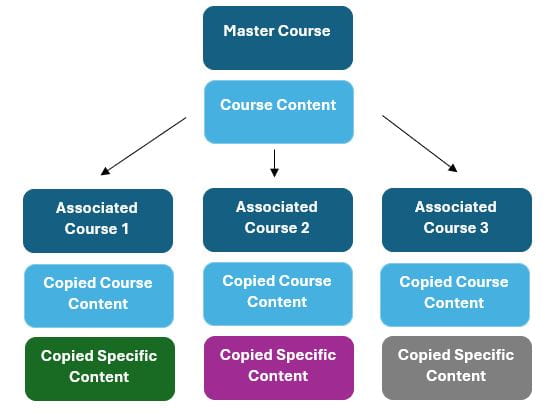Blueprint Courses makes it easy for academics to deploy, update, and maintain course content across any number of courses from a single master course, allowing staff to create content and announcements, lock specific settings or content items, and push updates to all associated courses through course syncing.
Any items that are not locked can be managed locally, allowing additional items to be added or edits to the distributed content. Content that can be managed locally by a staff member is not overwritten when the Blueprint Course is synced to associated courses, and new content created in any associated course is also not affected.

If you have similar content that needs to be distributed across a number of Canvas courses then Blueprinting could help you. Rather than updating each course individually, you can have one source for all distributed content. Any localised content, pertaining to only one course, could be added to that individual course without disrupting the distribution process.
The use of Blueprinting is probably not worthwhile if there is only very little similar content, in a course. The process does take some time to understand before it can be confidently used and could lead to mistakes if only employed a few times, during each semester.
Blueprinting does not simply share all materials. One common use is to identify elements common to multiple groups and only share them. Assignments should never be duplicated by Blueprinting and features such as announcements are usually kept distinct to the course in to which they belong.
Once your Blueprint course has been created you will then have control over the synchronisation of content. This process is described in greater detail at the ‘How do I sync course content in a blueprint course as an instructor?’ page.
Blueprinting is set up at the beginning of the year, prior to the commencement of teaching.
Ensure anyone involved in the course delivery is aware that Blueprinting is being used and they are enrolled on the Master and taught courses.
If you require a Blueprint course, the first step is to contact Helpdesk and raise a ticket. Please provide details of the courses intended to be associated. A member of the TEL team will help you to identify details around the type of content that is required to be shared and then will create the master course and identify the associations. This will identify the content that will be shared and the content that will remain unique to the course. When you are happy with the configuration you can then add yourself and other tutors to the course.





